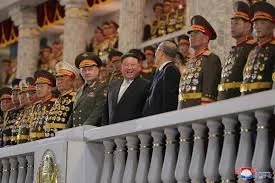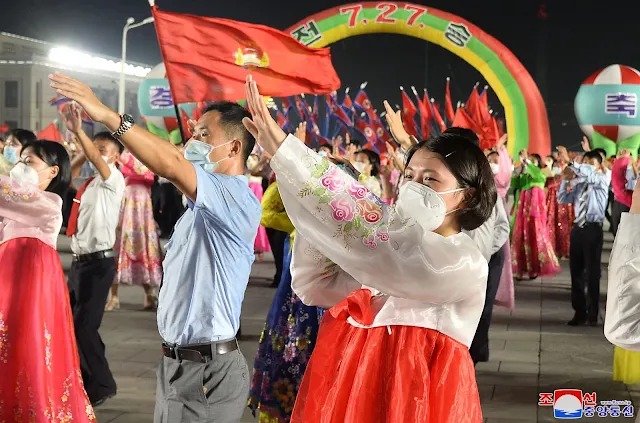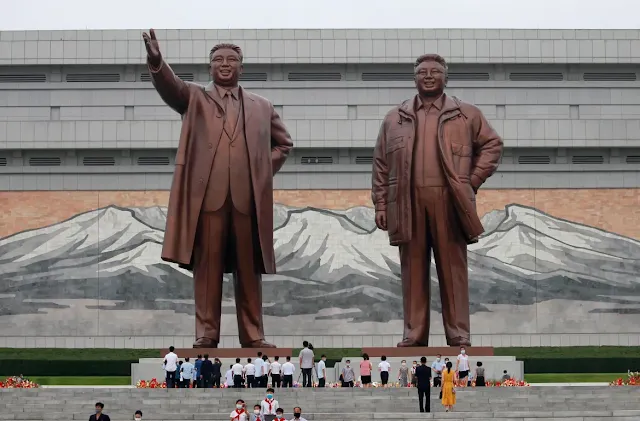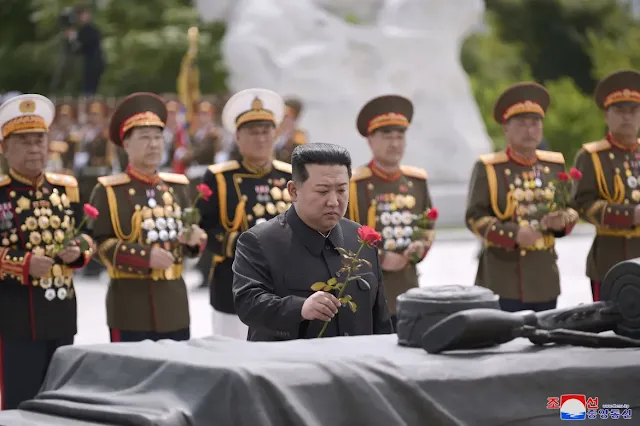The ongoing bloodshed between North and South Korea ended in 1953 after the armistice agreement. However, the immediate prospects of a permanent reconciliation between the two seem slim.
The ongoing bloodshed between North and South Korea ended in 1953 after the armistice agreement. However, the immediate prospects of a permanent reconciliation between the two seem slim.
Participation of Russian and Chinese delegations in North Korea's Victory Day celebrations
A US soldier who crossed the border into North Korean custody
North Korea threatened to shoot down US spy planes
Military secrets agreement between Germany and South Korea
Accordingly, North Korea also held several military and civilian events in which it invited senior members of the Chinese and Russian governments to Pyongyang to celebrate. North Korea celebrates it as Victory Day.
South Korea is the most expensive country in the world to raise children
North Korea is ramping up its rhetoric and display of military might. Just on Tuesday, it launched two medium-range missiles from its east coast.
Rahjong said that both sides are sticking to their own ideas and there are no signs of cooperation or dialogue between the parties. South Korean Rah Jong was 10 years old when he was attacked by North Korean soldiers in 1950. He was forced to flee Seoul with his family.
He said he was somehow safe in an area held by North Korea until UN troops forced the invaders back.
He said, "North Korea will also celebrate this day which they call 'Victory Day', but this is completely opposite to reality." He did not win and his plans to unify Korea under his ideology of socialism failed."
North Korea's Perspective
Western experts say that the Korean War ended without a clear victory and that communist North Korea was unable to control the capitalist South. However, it is also true that the US and its allies were unable to topple Kim Il Sung's regime, supported by China and the Soviet Union.
Kim Myung-chol, executive director of the Japan-based Center for Korean-American Peace, an organization that acts as a spokesperson for Pyongyang's interests, spoke about the war and relations with Seoul seven decades after the armistice. I share North Korea's point of view.
"Of course, the anniversary is very significant because it marks 70 years since America's defeat," he said. America had never lost a war before the Korean War, but after we lost it, it started losing wars like in Vietnam and Afghanistan. We showed other countries that America can be defeated."
He added, "And now we have ICBMs and nuclear weapons, so we are strong and the US knows it can't beat us."
He also said that North Korea "does not have any relations with South Korea and we do not need them." We have no diplomatic contact and only need to deal with America. And the only way to deal with America is by force."
Away from Seoul's 'Sunshine Policy
Houbin Lee, a professor of politics and ethics at Changnam National University, said that in the decades since the armistice, there have been years when relations between the North and the South appeared to improve. However, he says that there is no such situation today.
He said that improving relations with North Korea is undoubtedly a complex issue. "Since South Korea, the United States, China, Russia, and Japan each discuss the North Korean issue in terms of their own interests, the options available to South Korea to make a unilateral decision are very limited."
However, he says, "The most effective policy so far has been the 'Sunshine Policy' adopted by President Kim Dae-Jung in the late 1990s."
This policy was based on not tolerating armed provocations by the North but also included a commitment by Seoul to seek cooperation from the North rather than trying to absorb it.
"Some conservatives may criticize this as 'handout' diplomacy," the professor said, "but I believe that this is the only policy that can sustain dialogue and open its doors to North Korea and ban it." "It can be helpful to integrate into the international community."
'It doesn't look good'
Kim Dae-jung stepped down in 2003 and relations between the two Koreas continued to deteriorate. Relations seemed to improve under Moon Jae-in, who was president from 2017 to 2022. But since Yoon Seok-Yeol was elected last year, things have changed again.
"While the Moon administration maintained neutral diplomacy between the two superpowers, the US and China, after coming to power, the Yun administration has chosen a pro-US and anti-China stance," Lee said.
He added that changes in South Korea's foreign policy could lead to a deterioration, warning that there is little chance of progress in the near future.
Former intelligence officer Rah Jong-il is also pessimistic about de-escalating tensions.
"South Korea's politics are not stable and North Korea has acquired a large military force, including nuclear weapons," he said. It doesn't look good.''























